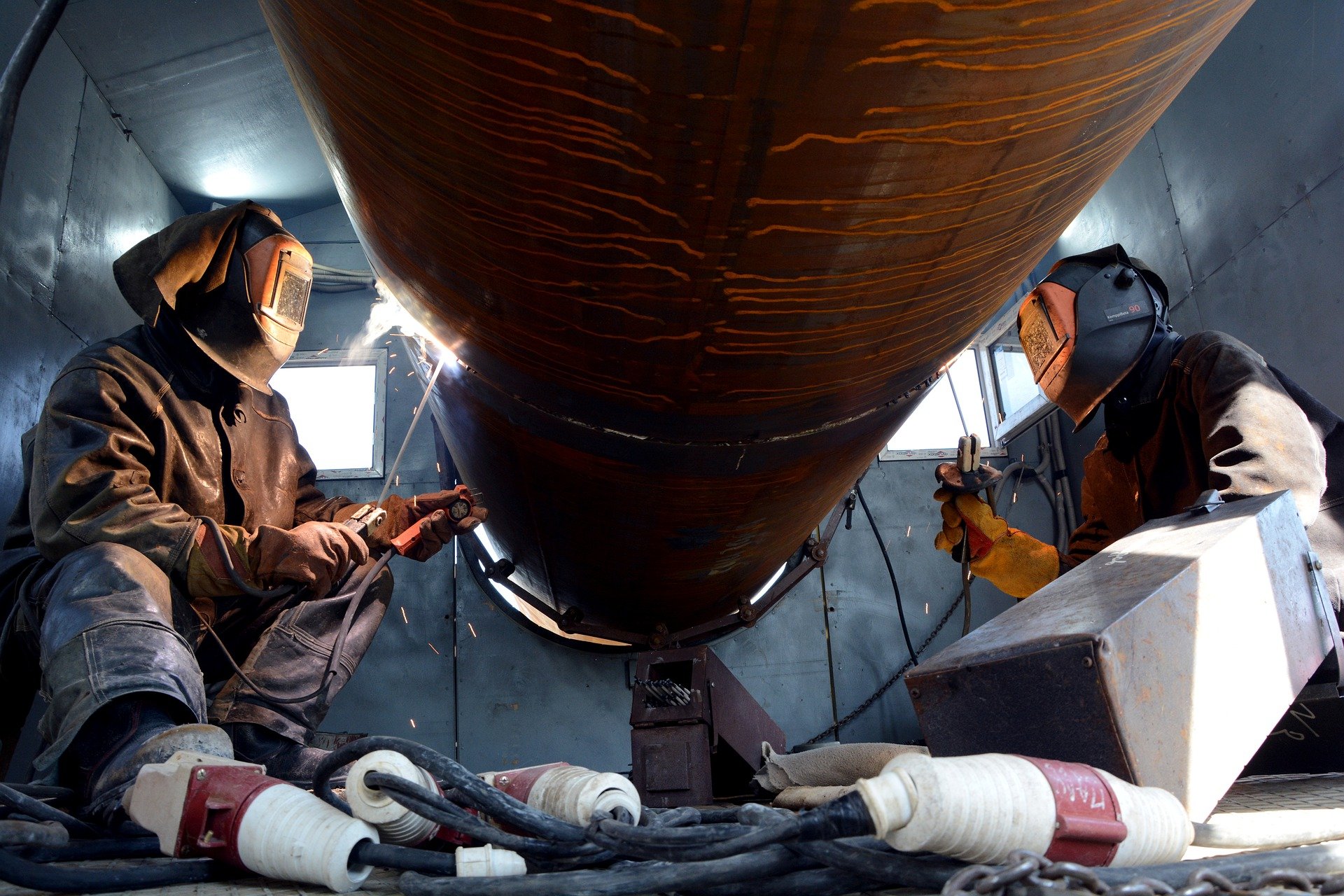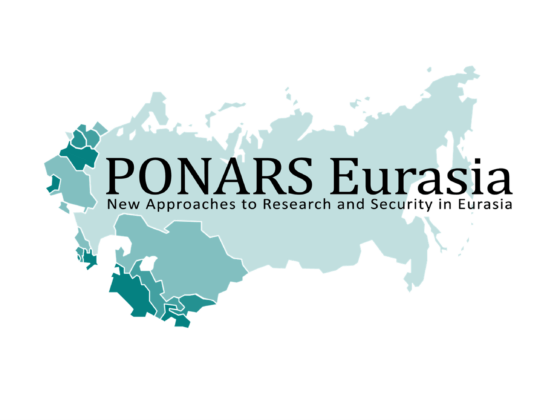(PONARS Eurasia Policy Memo) Late last year, the Nord Stream 2 pipeline seemed to be firmly heading to an eventual finish, but Russian aggression on Europe’s eastern flank brought the issue back to the table and the pipeline is now among the targets of anti-Russian sanctions. This comes at a time when EU policymakers are conceptualizing and administering the recently completed 2050 Green Deal, a set of policies standing tall as contemporary encouragement for improving continental energy use. The project, circumventing Central and Eastern Europe and aiming to send Russian natural gas directly to Germany via the Baltic Sea, has been driving wedges between European states for years now. It has also become a thorny issue in transatlantic relations, even more so after the Russian invasion of Ukraine.
After years of former President Donald Trump’s erratic and confrontational attitude, President Joe Biden’s milder, steady stance in his first year underlined a change in U.S. foreign policy style and priorities. Throughout, a lack of coherence has embodied the Nord Stream system. Its fate was effectively left to Germany’s discretion, with the western part of the EU generally less concerned about it than their Central European counterparts. In the latest development, in reaction to Russian aggression, Germany halted Nord Stream 2’s certification process, and on February 23, the United States imposed sanctions on the pipeline company and its corporate officers. While this might spell the end of Nord Stream 2, a silver lining could be that it prompts a more coherent and sustainable EU energy security strategy.
Nord Stream 2: A Litmus Test of EU Disunity
The pipeline has become symbolic of a particular energy project turned into an international issue and proof that unity in the EU energy realm is missing. The pipeline’s history is not only a track record of EU members’ clashing and often contradictory interests. It is a warning sign of how incoherent the EU is on the topic of energy security in the wake of its major long-term goal—securing climate neutrality by 2050. At the same time, the pipeline project provides yet another reason to stop thinking about energy supplies as being technical or purely state-specific and to recognize their far-reaching implications, especially in the rapidly integrating energy market.
Nord Stream 2 has been a contentious project from the very beginning. Unsurprisingly, Ukraine has been its most vocal opponent, as it will lose its transit role and, thus, its perceived lifeline if the pipeline becomes operational. However, the rest of Europe has been far from having the same opinion, and frictions have also emerged within the EU itself. While Germany has been supporting the pipeline from the beginning, Poland and the Baltics, in line with their traditionally strained relations with Russia, have been against it. The fact that other EU members, including the rest of the Visegrad group, have been much less concerned or even tacitly supported the pipeline does not help either. After briefly complicating the project by insisting on its compatibility with EU market rules, France eventually washed its hands of the issue, leaving it to Germany. Other major gas consumers, such as Italy and Spain, have not been particularly active in the dispute. Even though the EU formally shares responsibility for energy policy with member states, key features of this policy—mainly the energy mix or sources of supply—are determined at the state level. Unsurprisingly, it is hard to find unity in such a setting.
The role of the United States adds another layer of complexity. Trump’s rift with Germany, hardline attitude toward the pipeline, and sanctions surely did not help US-EU relations during his presidency. The sanctions also impacted European entities working on the pipeline and strained relations with the EU as a whole. Biden’s administration was perceived as a fresh start for the transatlantic bond. However, although the warming of relations was largely welcomed, alleviation of the pressure on Nord Stream 2, even though it helped to mend relations with Germany, did not fly well with European countries that were (often strongly) against the project. Despite marking the pipeline as a bad deal and even appointing a strong opponent of the project, Amos Hochstein, as an envoy for energy matters, the new U.S. president waived the sanctions previously imposed. Clearly, Biden did not want a particular infrastructural project to burden Washington’s relations with Germany, Europe’s largest economy and potential partner for future challenges.
However, turning a blind eye to Nord Stream 2 did not mark an abrupt change in U.S. foreign policy. Refocusing attention to issues outside Europe has been an ongoing process dating back to President Barack Obama’s first term. Although U.S. security interests in Europe saw an apparent revival during Trump’s presidency when the administration supported the Three Seas Initiative, in reality, U.S. attention had already pivoted toward China. The fact that U.S. foreign policy priorities for the future lie elsewhere has been a somewhat hard pill to swallow for some in Europe, particularly for the Central and Eastern European countries freed from the USSR’s dominance in the 1990s. These states do not take lightly any changes in U.S. foreign policy, and the current situation is no exception, especially now that the balance of power in Europe is being tested by Moscow. It is thus no wonder that Nord Stream 2 opponents were unhappy with the United States easing pressure on the pipeline last year. Poland and the Baltics hoped that the above-mentioned Three Seas Initiative might intensify U.S. involvement in the region; however, the initiative’s future is rather unclear now. Many infrastructural projects listed under the initiative face feasibility issues, and the Biden administration does not seem keen to invest in the endeavor.
Combined with the U.S. pivot to Asia, countries in Central and Eastern Europe may invoke concerns about their future security. However, regardless of some of the region’s countries’ Atlanticism, instead of trying to reverse the trend of changing U.S. priorities, they should seek remedy to their security concerns on their home continent along with their EU counterparts. Helping the EU strengthen its position on the international stage should be their ultimate policy goal if they want to see a more secure eastern neighborhood and energy supplies. Ultimately, it would be a win-win policy for them as well as the EU.
An Opportunity for the EU to Step Up
A basic understanding of what energy security means has been missing among EU members in a broader perspective. For the western part of the EU, the security of supply is taken care of by market rules and well-developed infrastructure. But central and mainly eastern EU members are still, to a large extent, concerned with the geopolitical aspects of energy supplies. Such a lack of coherence hurts the EU internally and externally. To make matters worse, not only is there a rift between the central and eastern European countries and the western part of the Union, even the German-French leading tandem is not pulling in the same direction at the moment. While French President Emmanuel Macron has been trying to rise to the position as the EU’s most important leader after Angela Merkel’s retirement, Germany has been preoccupied with formulating its position amidst the current crisis. Maneuvering around the controversial pipeline while trying to define the country’s foreign policy identity is a major task that will keep the new German government busy in the foreseeable future.
During new German Chancellor Olaf Scholz’s visit to Washington in early February, Biden clearly stated there would be no pipeline if Russia invades Ukraine. Scholz, standing next to the U.S. president when he made those remarks, kept a restrained position and only hinted that such an option is possible. Clearly, the chancellor was unwilling to compromise Germany’s long-standing careful attitude, wary of drawing any connections between Russia’s wrongdoings and the pipeline even when Russian forces were amassing at the Ukrainian border. Shortly after events took a dramatic turn and Russian troops marched into the Luhansk and Donetsk regions, Germany stopped the pipeline’s certification, and Washington sanctioned it. The White House thus de facto returned to its pre-May 2021 position. The pipeline itself is currently finished and only waiting for certification, but it may take long now before the first gas molecule reaches the German grid. Although the sanctions create a significant obstacle, the project is still merely suspended, not canceled, but it will surely remain a frozen issue in the months to come.
There is a silver lining to the troubled project. Despite its divisive nature, the Nord Stream 2 controversy can serve as a springboard to a more coherent EU. The EU has set an ambitious task to become climate neutral by 2050, and this monumental challenge will require a concentrated effort from all EU members. At the same time, the process will have an impact both internally as well as on the EU’s external relations. Despite the EU’s push to decarbonize the energy sector, the import dependence will not fade anytime soon as the EU’s indigenous sources are running dry. That relates mainly to natural gas, which in the foreseeable future will be crucial for the transition to low-carbon or zero-carbon sources. Natural gas will play an important role, especially in power generation and heating, as it produces about half of the CO2 emissions compared to coal. Given its dependence on physical infrastructure and way of marketing, natural gas is most often associated with politicization. Russia is poised to become an even more important energy supplier to Europe; therefore, concerns about natural gas being misused as a foreign policy tool are unlikely to go away anytime soon. Even though it is rather unlikely that Russia would compromise its position on the most important western European markets by politicizing its gas supplies, it is still necessary for the EU members to come to terms on energy security matters with regard to its future energy- and climate-related goals.
Energy policy is a complex area, determining economic development and often, as we have seen many times, including the current crisis, overlapping with the foreign policy sphere. On the plus side, given its over-arching nature, the energy sector is well-suited to become a platform for deeper interstate integration in the future. After all, today’s EU is rooted in a post-war, energy-related integration project, narrowly focused on the coal and steel sectors (which later branched). Ironically, the experience with the Nord Stream 2 project, which laid bare the lack of unity and thus rendered the EU unable to tackle both the project and its political consequences, can become the push the EU needs for reform.
The first steps should entail developing a consensus on the applicability of the EU energy market rules on infrastructure to and from third countries. The legislation exists, but the will to universally apply and enforce the measures has been missing so far. The hypocrisy of letting Germany decide the matter while criticizing it for not doing enough should not be repeated.
Second, EU members should propose taking measures that could be activated in response to supply crises or curtailments. These may entail mandatory, minimum storage levels. Such measures would help alleviate the impact of supply irregularities like that in Europe late last year when low storage levels and Russia’s unwillingness to fill them up after last winter turned out to be among the reasons for the recent price hike.
Third, because it is apparent that an understanding of energy security differs widely among EU members depending on their geographical location and historical experience, a higher degree of solidarity and mutual understanding is needed. The Treaty on the Functioning of the EU (TFEU) enshrined the principle of energy solidarity in the Union’s foundational documents, specifically in article 194. Therefore, the EU does have a fitting cornerstone principle to enhance its internal coherence in its very foundations. The article suggests that the EU should ensure the functioning of the energy market, promote interconnections, and ensure the security of supply of all relevant members in the given situation. Despite its vagueness, the provision can be used to enhance cooperation among member states if properly enforced. The provision can also serve as a negative delimitation of activities that are in breach of the principle.
A prime example of such application was last year’s decision by the European Court of Justice when it upheld an earlier ruling that stated that letting Gazprom use the entire capacity of the OPAL pipeline (a follow-up pipeline bringing gas from Nord Stream 1 into the German grid) would breach the energy solidarity principle regarding the supply situation of central European countries. In essence, the court thus effectively put the principle on the same level as market rules, at least in terms of relevance for market functioning. The ruling effectively stated that EU countries have to consider the impact on other members as well as the energy security of the EU as a whole in decisions on infrastructural projects with potential cross-border implications. Building on the court’s ruling along with market rules, the EU currently has what it needs to tackle the issue of supply security. It has rules securing fair competition, turning former market creators into market subjects, and an applicable solidarity principle, making sure that all members are obliged to actively contribute to the energy security of other members if need be. Undoubtedly, the last missing piece is the will to apply these measures to their full extent.
Conclusion
Nord Stream 2 has been a troublesome issue for too long already. It has been progressing despite the worsening of relations between Russia and the West and despite a change in the White House. It could be that even the current dramatic development in Ukraine might not be the definitive end of it. But a silver lining endures, after all. As much as it is clear that the rift over Nord Stream 2 should not have gone this far, at least it can be used as a lesson now. The current crisis may be an opportunity for the EU to step up its position on the international scene. Agreeing on a joint attitude to external partners and the security of supplies should be the first steps. Without that, more supply-induced security crises can be expected as individual interests will keep prevailing over collective security. The time is ripe also because the EU is now on the brink of an era when energy-related topics will dominate the agenda, with the 2050 climate goals being the main driver. A truly collective effort is essential more than ever before.
Martin Jirušek is Assistant Professor at Masaryk University, Czech Republic, and Managing Editor of the University’s Czech Journal of Political Science. He is currently a Fulbright Visiting Researcher at the George Washington University.
PONARS Eurasia Policy Memo No. 742
Image credit











